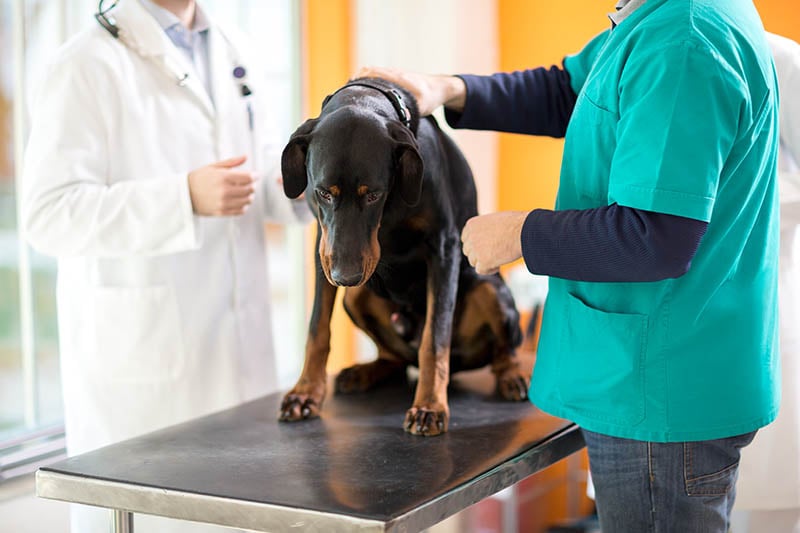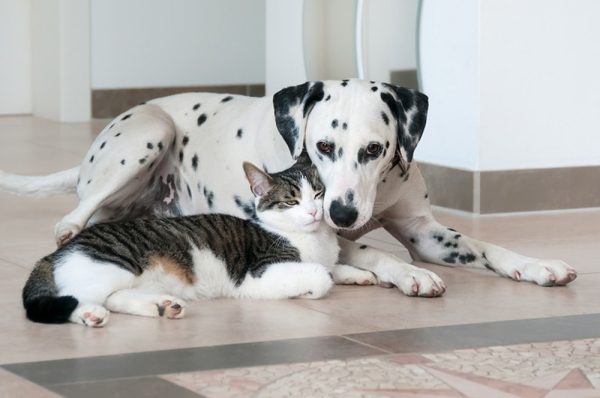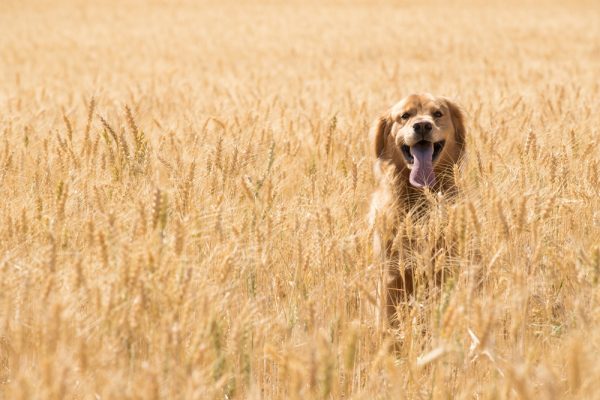In this article
Raising awareness of doggy health issues is a worthy and important activity. Today we’re looking at an issue close to the hearts of many pet parents: canine lymphoma. National Canine Lymphoma Awareness Day, observed every November 7th, is all about raising awareness and educating pet owners about this devastating disease.1
Knowledge is power, and when it comes to cancer, early detection is key. It’s time to get educated on this devastating illness, so let’s dive right in!

What is Canine Lymphoma?
Canine lymphoma, as explained by Blue Pearl Pet Hospital, is a type of cancer that affects dogs’ lymph nodes and immune systems.2 Humans can get a similar type of cancer. This is actually one of the most common types of cancer in our four-legged friends. According to a study published in Vet Q, between 20 and 100 of all dogs out of 100,000 diagnosed with abnormal cells have lymphoma.3 So, it’s definitely something to be aware of.
Dogs actually have a whole bunch of lymph nodes scattered throughout their bodies. On average, they’ve got around 60 to 70 of these anti-infection bodies, which play a crucial role in their immune system. It’s important to know their locations, like under the jaw, in front of the shoulders, and behind the knees, so you can keep an eye on them and spot swelling or any other changes.
What Are the Symptoms of Canine Lymphoma?
Knowing the symptoms is key to catching this disease early. The most common signs include swollen lymph nodes, weight loss, lethargy, and loss of appetite. If your dog has been acting strange, don’t sleep on it—make sure to check in with your vet ASAP. Early detection can make all the difference!
When it comes to their health, our fur babies can’t advocate for themselves. Your observation and proactivity really can make all the difference for their well-being and longevity.
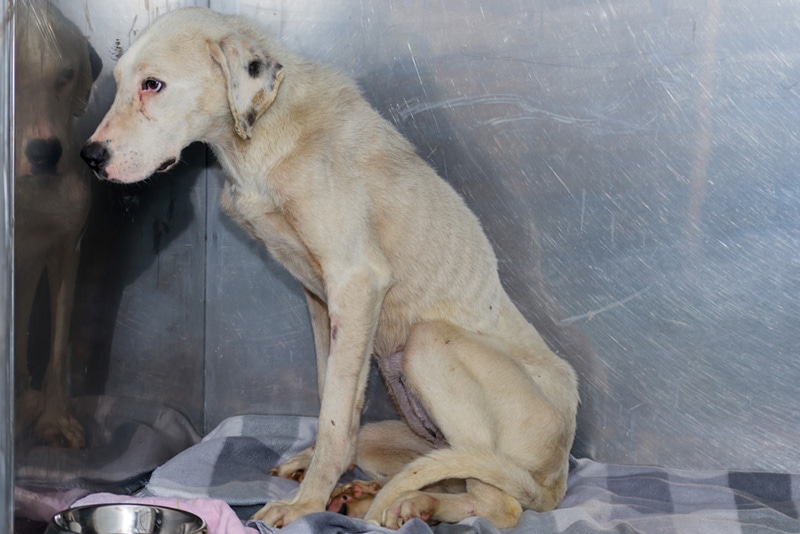

What Breeds are Most Likely to Develop Lymphomas?
Certain dog breeds may be more prone to developing lymphoma than others—but strangely, it seems like the risk is different across different European countries. So, it seems there is much more yet to be discovered about this disease. For now, Boxers, Bernese, Rottweilers, and Dobermans are some of the breeds that seem to have a higher risk.
If your dog is from one of these breeds, it may feel like a major disappointment but it’s important to remember that this is just a risk, not a certainty. On the flip side, Beagles and English Cocker Spaniels seemed to be on the safer side, with a lower risk of getting lymphoma.
If you’ve got one of those higher-risk breeds, chat things over with your vet. It’s crucial to stay vigilant and keep an eye out for any unusual symptoms. Don’t forget that educating ourselves is our secret weapon against this disease—which is what National Canine Lymphoma Awareness Day is all about.
If you need to speak with a vet but can't get to one, head over to PangoVet. It's our online service where you can talk to a vet online and get the advice you need for your pet — all at an affordable price!

Different Types of Lymphoma
Canine lymphoma isn’t a one-size-fits-all situation. According to a research article published in Publicare, there are actually several different forms of the disease, like multicentric, alimentary, and mediastinal lymphoma. Each type affects different parts of the body and requires its own unique approach to treatment.
Let’s break it down—these three types of lymphoma are all about where the cancer is spreading in your dog’s body.
- Multicentric lymphoma: This is the most common type, affecting about 80% of dogs with lymphoma. It involves multiple lymph nodes, usually starting in the peripheral ones (like those in the neck, shoulders, and behind the knees). When this type hits, your dog might have swollen lymph nodes that you can actually feel.
- Alimentary lymphoma: This type is all up in your dog’s gastrointestinal system. It’s less common, accounting for about 5–7% of canine lymphomas, but it’s still pretty serious. Symptoms can include vomiting, diarrhea, weight loss, and poor appetite. It’s as if your fur baby’s entire digestive system is having a meltdown.
- Mediastinal lymphoma: Last but not least, this type targets the mediastinum, which is the area between your dog’s lungs. It’s rare—thank goodness—but it can cause some terrible issues like difficulty breathing, coughing, and increased thirst. Sometimes it can even mess with your best pal’s blood calcium levels.
Each type of lymphoma is a different beast, and knowing what’s what can help you and your vet figure out the best way to tackle it. But rest assured, there are steps that can be taken to help manage the condition.
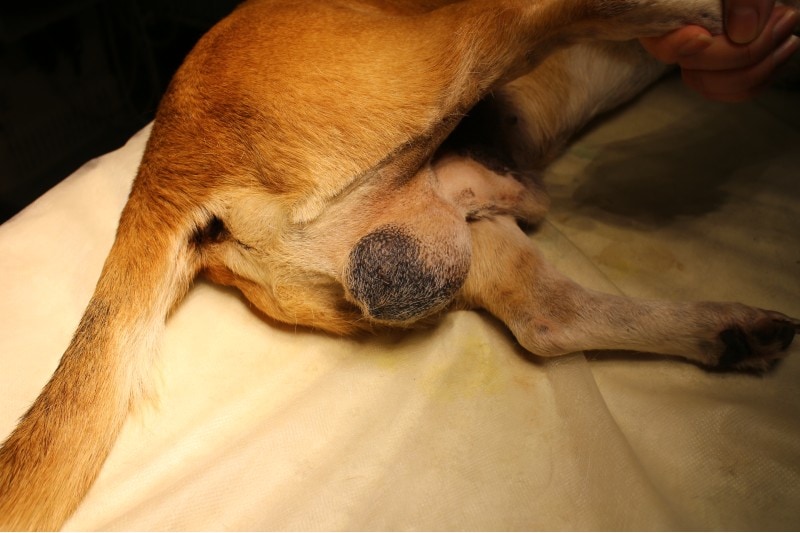

How is Lymphoma in Dogs Treated?
When it comes to treating lymphoma, vets usually turn to chemotherapy as the go-to method. Your vet will come up with the right protocol for your dog’s unique situation. Chemo might sound scary, but it can be super effective in helping dogs fight cancer. Science is always progressing and treatment options are getting better all the time.
Depending on the type and stage of lymphoma, your vet will choose the best combo of chemo drugs to give your dog the best shot at getting better. This isn’t a walk in the park by any means—but it doesn’t have to be the end of your world. Your best pal might feel a bit under the weather, but their symptoms are usually pretty mild.
What if Chemo Isn’t Enough?
In some cases, vets might also recommend surgery or radiation therapy, but that’s less common. Every case is unique, however. It all depends on the specifics of your dog’s lymphoma. Long story short—treating lymphoma is all about working closely with your vet and finding the best course of action for your bestie.
How Can I Honor National Canine Lymphoma Awareness Day?
So, what can we do to help our canine friends? Manitou Animal Hospital suggests the usual things all good pet parents prioritize: regular vet check-ups, maintaining a healthy diet, and keeping an eye out for any changes in your dog’s behavior. Health and longevity are all about taking a proactive approach—for dogs and humans!
Vet bills get expensive—but you may get lucky and find that your local vet is running a special on health checks on this date. It doesn’t hurt to ask.
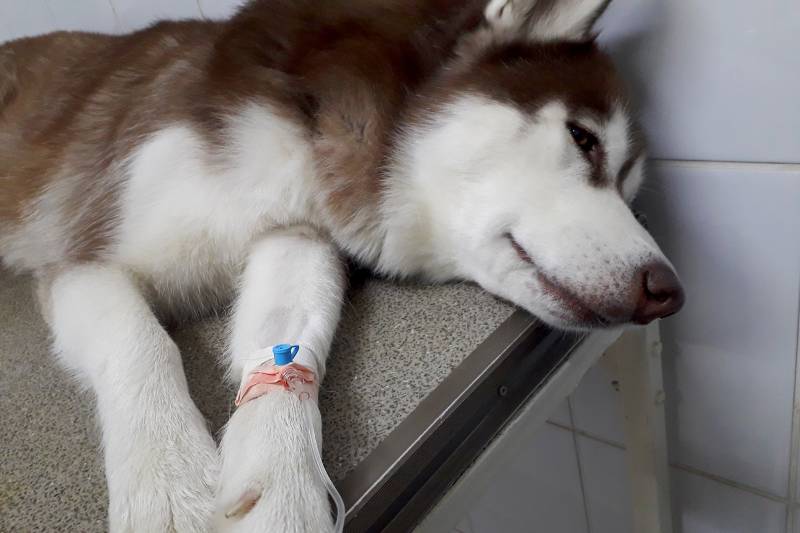

Conclusion
In conclusion, National Canine Lymphoma Awareness Day is the perfect time to educate ourselves about this challenging disease, and it’s a great reminder to give our best pals some extra love and attention. Bringing out their happy smiles means the world to us. So, share the word with your family and friends, and let’s work together to keep our furry friends happy, healthy, and cancer-free!
And remember knowledge is power, and when it comes to our pets, ignorance is never a good option.
Featured Image Credit: Lucky Business Shutterstock
